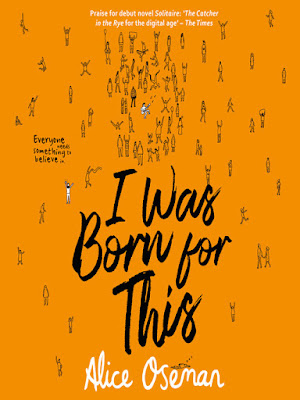Book review: Ace by Angela Chen
Ace: What Asexuality Reveals About Desire, Society, and the Meaning of Sex
by Angela Chen
Finished reading: 01/10/21
My rating: 5/5 stars
“It’s easy to say that sex is important and it’s harder
to be vulnerable enough to say that sex is important because a lack of sex
creates fear and insecurity.”
Ace is a non-fiction book that explores sexual attraction
and how asexuality intersects with the various complexities surrounding sex and
society. The book is layered with stories from many people who identify as asexual
and allows them a space to share their experiences of living in and navigating
a world of compulsory sexuality.
I absolutely adored this book! I rarely feel inclined to
reach for non-fiction, but this seemed too important to ignore. After reading
it, I feel so much more passionately about just how important it really is. As
someone who is probably much more familiar with the concept of asexuality than
the average member of the public, I cannot tell you how much I learnt. I went
through a good hundred sticky tabs highlighting all the parts I need to research
further. This book really has the potential to alter the perspectives of how
people perceive the world and for that reason I will be recommending it to everyone I know!
I really appreciate how this book went beyond simply a handbook
explanation but took time to explore the intersections of gender and asexuality,
race and asexuality, disability and asexuality, aromanticism and asexuality,
consent and asexuality, relationships and asexuality. These weren’t covered as
a token gesture but deeply and critically analysed in a philosophical way.
Chen approaches such a messy and complicated subject in such
a clear, precise, and accessible way. Her research is rigorous both in terms of
academic material as well as interviewing ace individuals. I loved that she
covered all the facts in a disciplined way whilst also taking time to open up
about her own experience with asexuality too. The balance between these two things was
executed perfectly, making the experience both educational and moving.
The journey of this book was fascinating to me. Chen’s
thoughts were structured very logically and so easy to follow. One of my fears
of reading non-fiction is becoming lost in the text and too disinterested to
keep going. But I didn’t experience this at any single point. On every page I
knew it’s exact purpose in the context of the whole book and I felt thoroughly engaged
from start to finish. Chen didn’t choose to dumb down the content for which I
was extremely grateful as the topic’s complexity deserved to be reflected. She
also didn’t choose to look down on the reader either, like so many academic texts
seem to do. Chen’s writing style is more conversational, like a one-ended
script, you read one passage and think of a question, and she answers it on the
next page. She offers her opinion but doesn’t shove it down your throat. I
really commend Chen as a writer and her approach to this topic.
One of the things I loved most of all was the emphasis on
identity being a fluid and changing thing. Not an obligation, commitment or a means
of being trapped. Labels are so often used as a means to segregate and confine
but Chen beautifully presents how the ace community has used a label to find
one another and come together. I think this idea of fluidity would be applied well
to many other aspects of our identities too.
Chen also presents a very hopeful future for ace
individuals. She addresses the undertones of sadness and sense of loss experienced
by ace people but focuses on the bright side and ways in which the ace
lifestyle can be happy, satisfying and celebrated. We so often overlook the
power of feeling seen and the importance of instilling hope in those that have
for so long been convinced they are broken and excluded.
This book gave me the rare and wonderful experience of finishing
the book and feeling like a different person to who I was when I started. It
truly opened my eyes to the corners of the society so often shut away from
public interest and forced me to reflect on my own identity and experiences. I am
appalled by the lack of ace visibility and representation and am so grateful
that this book exists to hopefully change this. Everyone can learn something from
this book regardless of how you identify, and I hope that it can lead to more
important and challenging conversations in the future.




Comments
Post a Comment